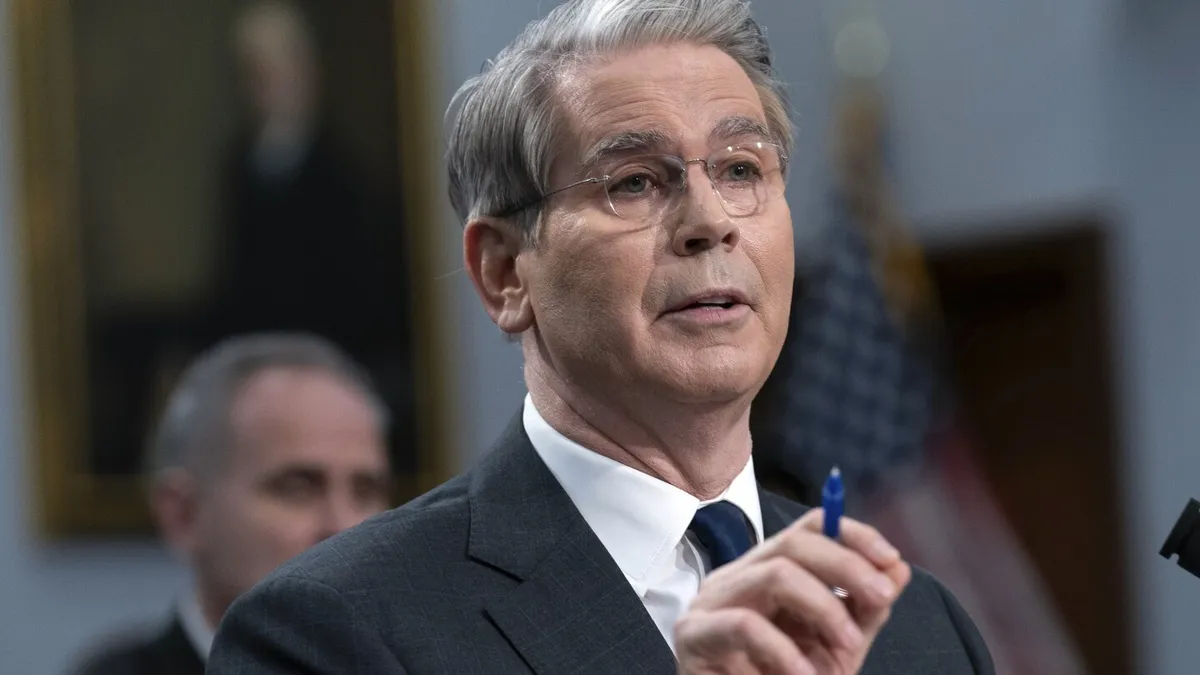
Washington (AP) — On Sunday, Treasury Secretary Scott Bessent addressed concerns about inflation linked to the tariffs imposed by the Trump administration. He emphasized that warnings from Walmart regarding potential price increases for consumers should be viewed as a “worst-case scenario.” This statement comes amid ongoing skepticism about President Donald Trump’s economic leadership.
Bessent defended the administration's position on inflation during interviews on major news shows, suggesting that the uncertainty created by Trump’s negotiating tactics in trade talks could be beneficial. He also downplayed the recent downgrade of U.S. government debt by Moody’s Ratings, asserting that the financial markets had already factored in the implications of a staggering $36 trillion federal debt.
In a conversation with Walmart CEO Doug McMillon, Bessent noted that for Walmart customers, the decline in gasoline prices—averaging about $3.18 a gallon—was more significant than concerns about inflation. Despite the recent fluctuations in gas prices, Bessent indicated that Walmart would absorb some of the tariffs imposed, while some costs might be passed on to consumers. “Overall, I would expect inflation to remain in line,” he stated, though he acknowledged consumer anxiety following the inflation surge that peaked at a four-decade high in June 2022 under President Biden.
In a recent post on his Truth Social platform, Trump urged Walmart to absorb the additional costs stemming from these tariffs. He emphasized that Walmart had generated substantial profits the previous year, suggesting they should “EAT THE TARIFFS” instead of increasing prices for their customers. This statement reflects Trump's ongoing scrutiny of large retailers in the context of trade policy.
During Walmart's earnings call, Bessent pointed out that the retailer had to disclose worst-case scenarios to comply with federal regulations, implying that the anticipated price hikes may not be as severe as suggested. However, Walmart executives reported that price increases began to emerge on store shelves as early as late April and have accelerated since then. Chief Financial Officer John David Rainey highlighted the retailer's commitment to keeping prices low, but acknowledged the limits of what any retailer can endure.
Despite the ongoing concerns about budget deficits, Bessent asserted that the economy would grow at a rate faster than the accumulation of debt, which would mitigate the impact of deficits as a proportion of the overall economy. However, many independent analyses express skepticism about the administration's projections of achieving a 3% average growth. Previous tax cuts enacted during Trump’s first term did spur growth but also exacerbated budget deficits.
The Trump administration continues to navigate tariff rates with approximately 40 major trading partners, with a crucial deadline set for July. Additionally, they are in the early phases of negotiations with China, having recently agreed to reduce tariffs from 145% to 30% to facilitate further discussions. Bessent acknowledged that concerns from small business owners regarding tariffs likely stemmed from previous higher rates imposed on China.
Bessent concluded by emphasizing that the uncertainty surrounding tariffs is a strategic negotiation tactic. He argued that providing too much certainty to other countries could undermine the U.S. position in trade negotiations. His appearances on NBC’s “Meet the Press” and CNN’s “State of the Union” highlighted the administration's ongoing efforts to manage trade relations and economic stability amidst fluctuating market conditions.